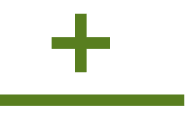Prefabrication and modular construction have recently gained popularity among organizations and investors seeking efficient and cost-effective ways to build new capital projects and improve existing sites. While these two construction methods share similarities, understanding their differences is critical for determining the best approach.
What is Modular Construction?
Modular construction entails several off-site construction processes, usually in a controlled environment such as a factory or fabrication facility. This allows for greater control over safety and quality, less construction time on site, and, in some cases, shorter project timelines and reduced costs.
When modules or modular systems are completed, they are delivered to the project site for final assembly and commissioning. Depending on the application, modular systems can be built and customized to include a wide range of mechanical, electrical, and plumbing systems.
What is Prefabrication?
Prefabrication, like modular construction, occurs in a controlled environment like a fabrication shop or factory. However, this process entails constructing components such as walls, beams, pipes, and panels. The elements are combined to form larger structures.
What is the Difference Between Prefabrication and Modular Construction?
The primary distinction between prefabrication and modular construction is that prefabrication creates individual components used to make larger structures and systems, whereas modular construction creates entire modular systems or units. Not all prefabricated components are used to build modular structures, which is an essential distinction between them.
Their benefits also vary. Prefabrication gives you more design and customization options. Modular construction allows construction to occur off-site, leading to faster project completion because more significant, integrated units can be built, tested, and transported to the construction site.
What is the Difference Between Modular Construction and Traditional Construction?
Traditional construction takes place on a construction site. It requires increased staffing, site control, and security. This method is commonly used for the construction of larger capital projects. It also has its own advantages and disadvantages, such as greater flexibility and customization during the construction phase and the potential for project delays and safety risks.
Modular construction moves the construction phase offsite. It allows specially trained teams to build complete modular units and systems in a controlled environment. This has immediate benefits, such as reducing the need for on-site construction teams, reducing safety risks, and avoiding weather or coordination delays. Modular construction can improve quality control because the controlled conditions in a fabrication or factory environment allow construction standards to be applied more consistently.
Partner With H+M Modular—Prefabrication and Modular Construction
Prefabrication and modular construction are closely related construction methods that provide distinct benefits. Their applications vary depending on the project, and they can be the best option for projects with specific requirements that cannot be met through traditional construction methods alone.
Modular construction can offer advantages for projects that require faster and more efficient solutions. Prefabrication can offer more design and customization options. However, selecting the best approach requires front-end planning and collaboration with the right contractor with experience in both methods.
H+M’s modular group specializes in designing and fabricating truckable modules, providing exceptional capital project execution from concept to start-up for clients across the United States. From our engineering and fabrication headquarters in Houston, Texas, we can transport your project to wherever you are. For over three decades, we have provided end-to-end solutions for a wide range of project sizes within the energy, chemical, and terminals and logistics industries.
We are dedicated to providing trust, experience, and efficiency through all stages of engineering, procurement, and construction through our proven strategic EPC approach. Our comprehensive services, including front-end planning, detail engineering and design, procurement, fabrication, and construction allow us to take your modular process plant project from conception to completion, tailoring engineering and design solutions to meet your unique needs.

The H+M Industrial Team
For over three decades, we have provided best-in-class capital project management services to Energy and Chemical industries through our proven EPC approach. We are dedicated to providing trust, experience, and efficiency through all stages of engineering, procurement, and construction--on budget and on time.

Partnering with H+M Modular
H+M Modular, a division of H+M Industrial EPC, specializes in custom fabricated equipment, modules, and skids for energy and chemical industries. The approach emphasizes the potential for decreased risk through more controlled fabrication, leading to enhanced quality and safety, reduced labor costs and construction times, improved labor availability, and solutions to geographic challenges. We are dedicated to providing trust, experience, and efficiency through all stages of traditional and modular construction projects using our proven EPFC approach, If you're considering modular fabrication, we invite you to connect with us to learn about how modular solutions can improve project outcomes.





